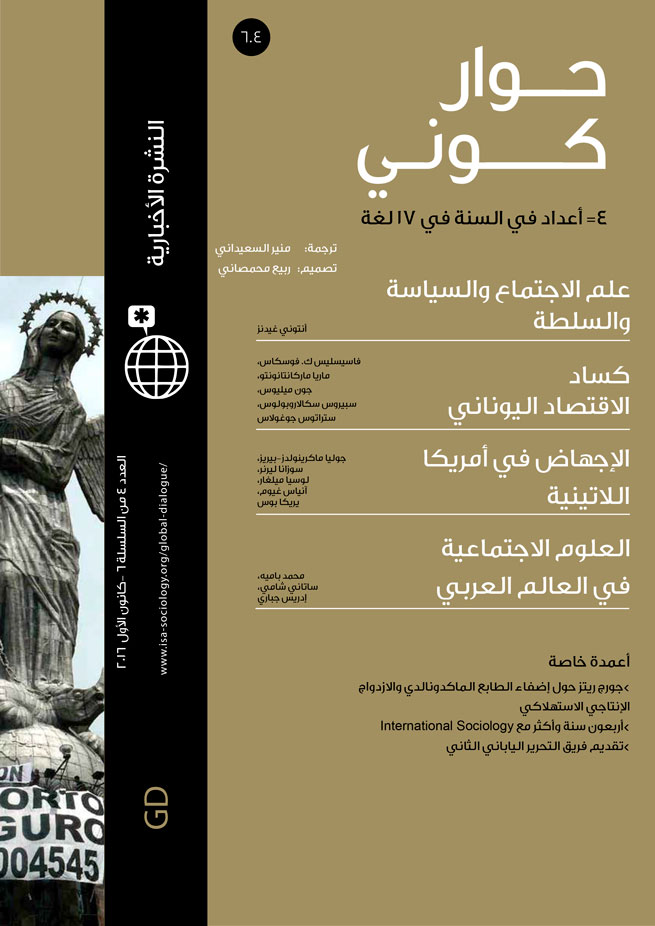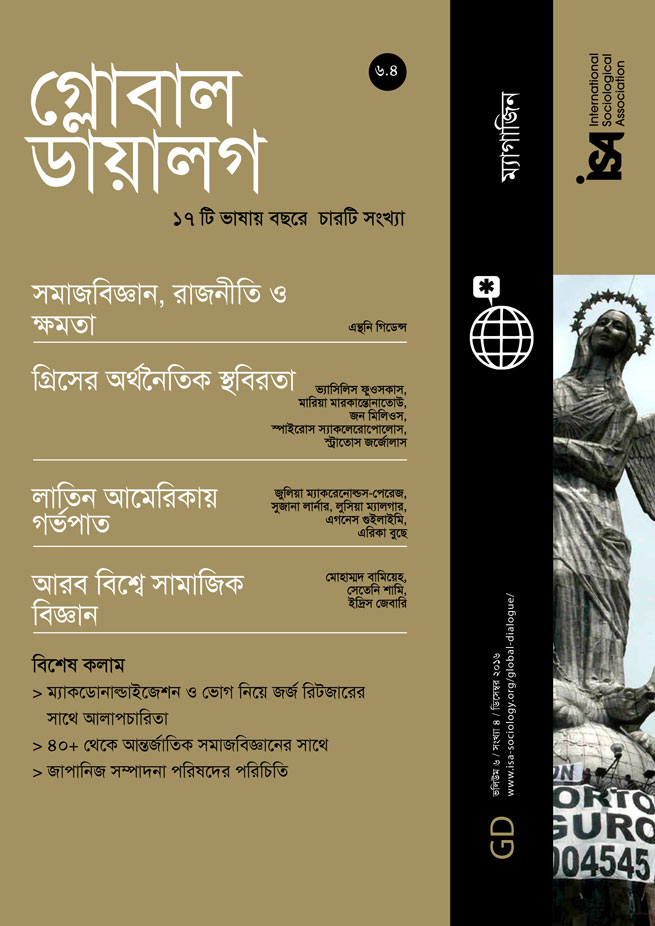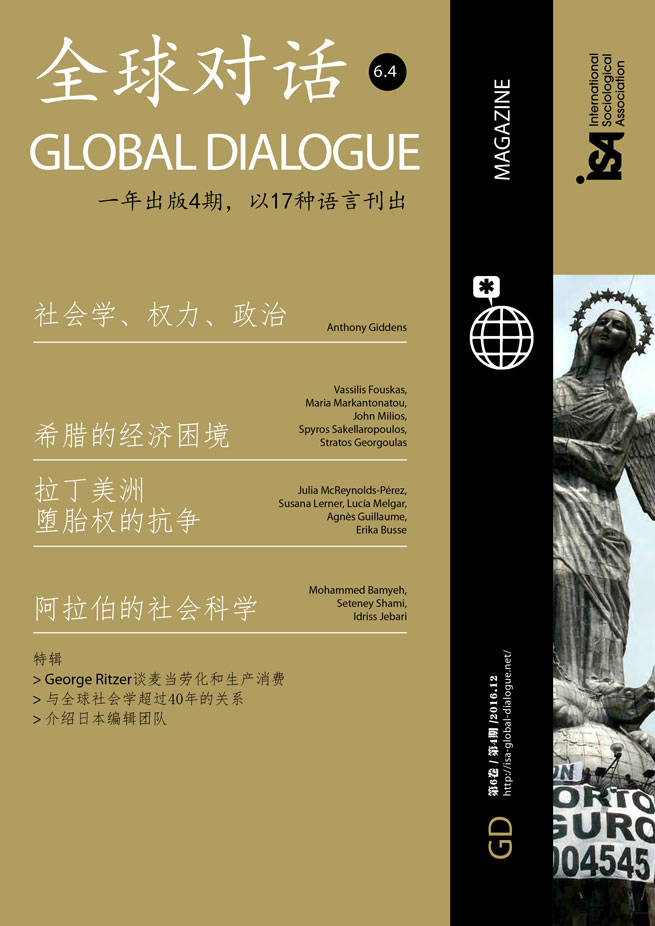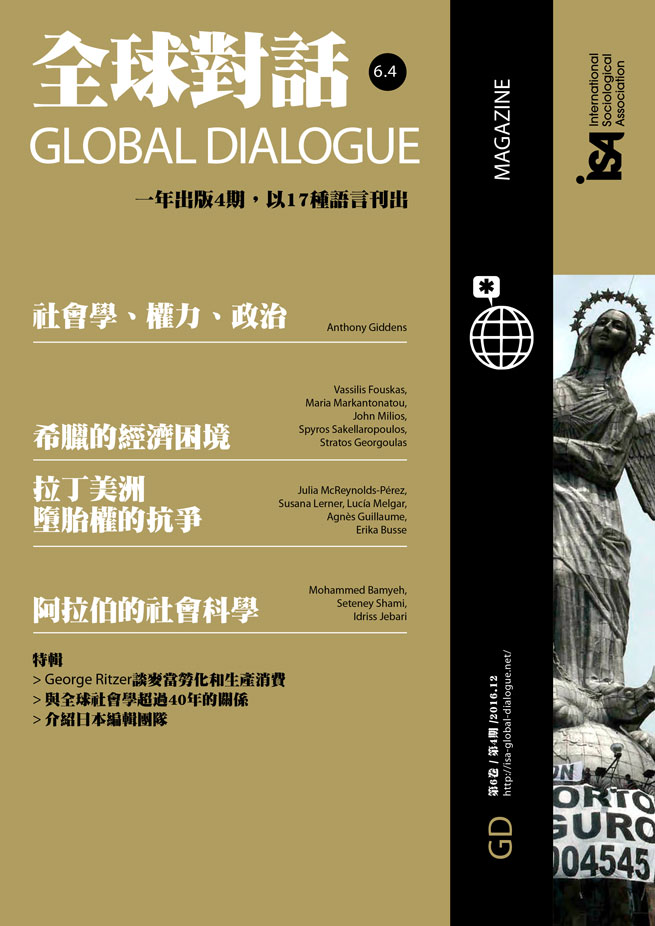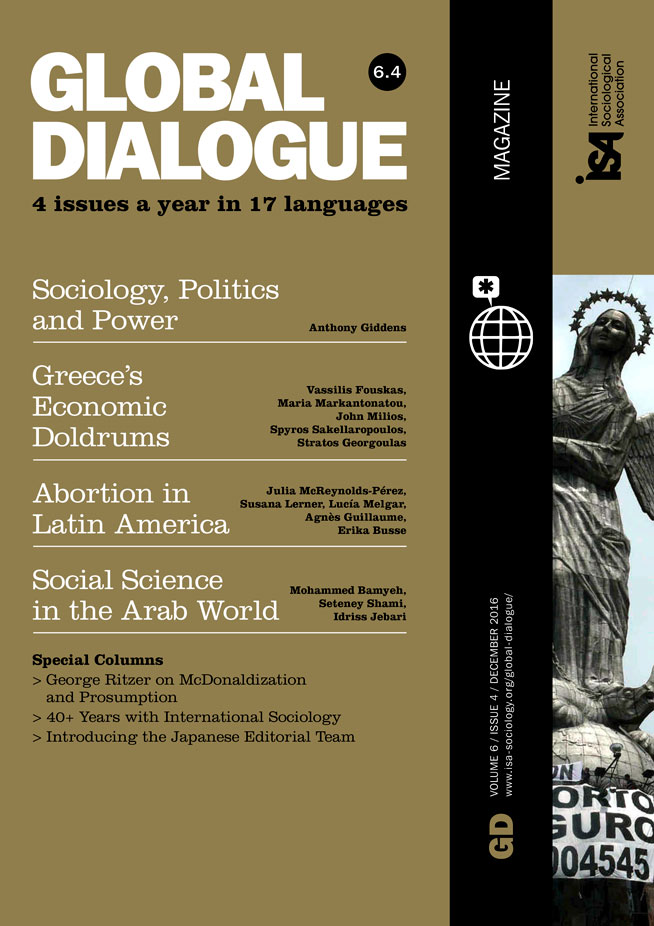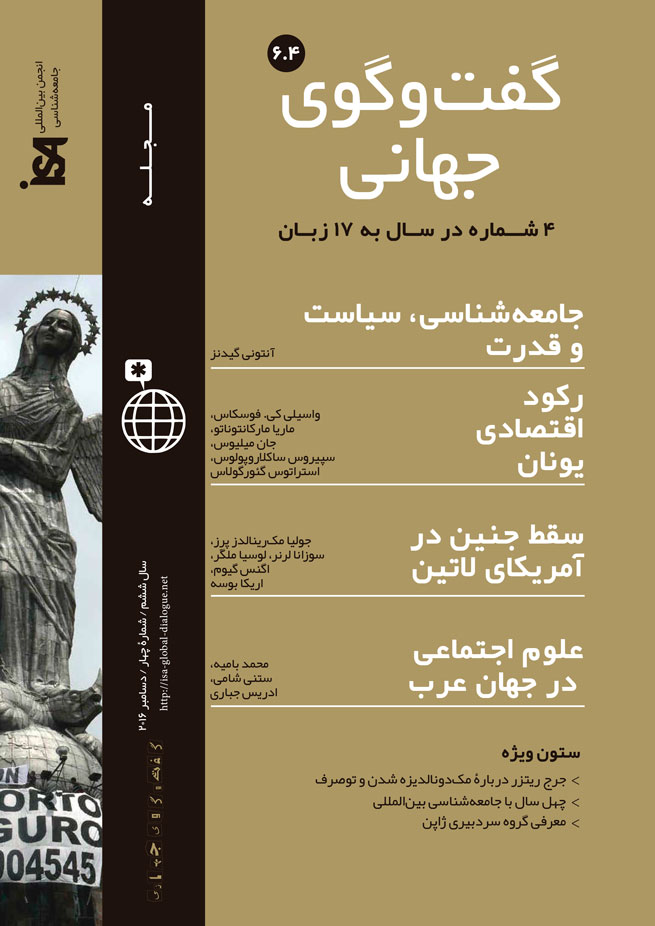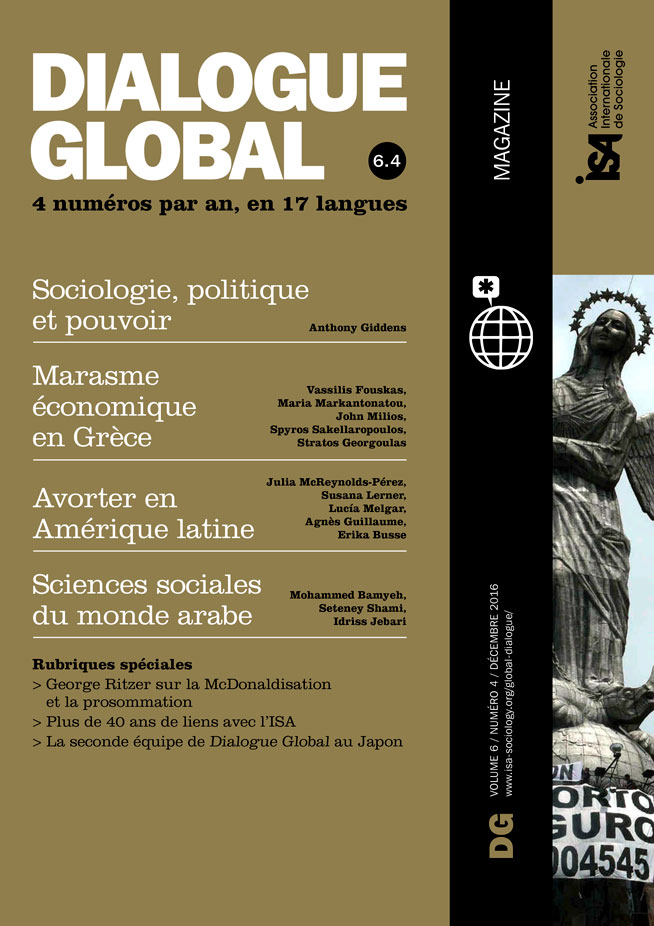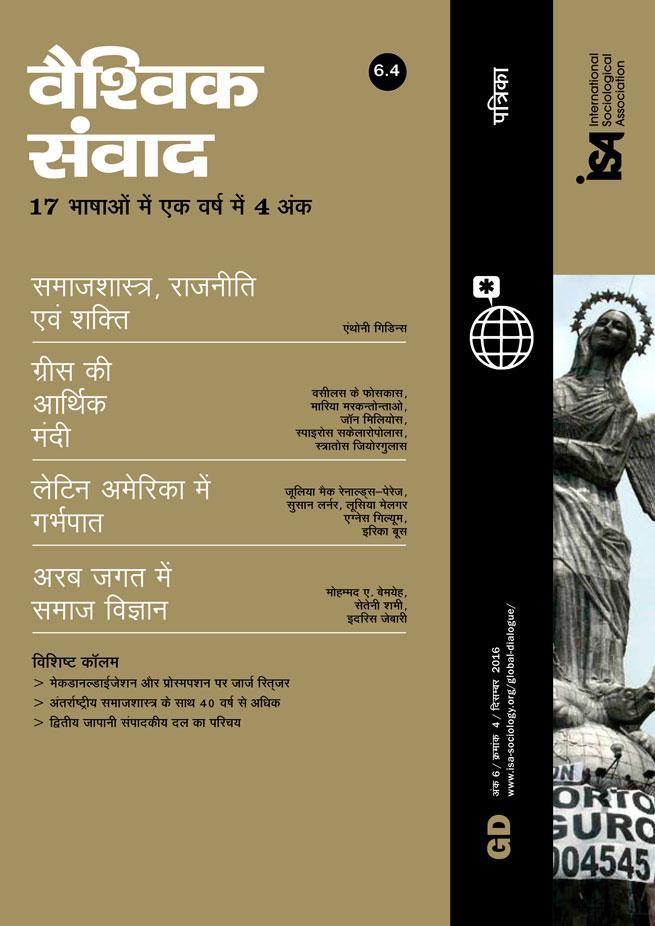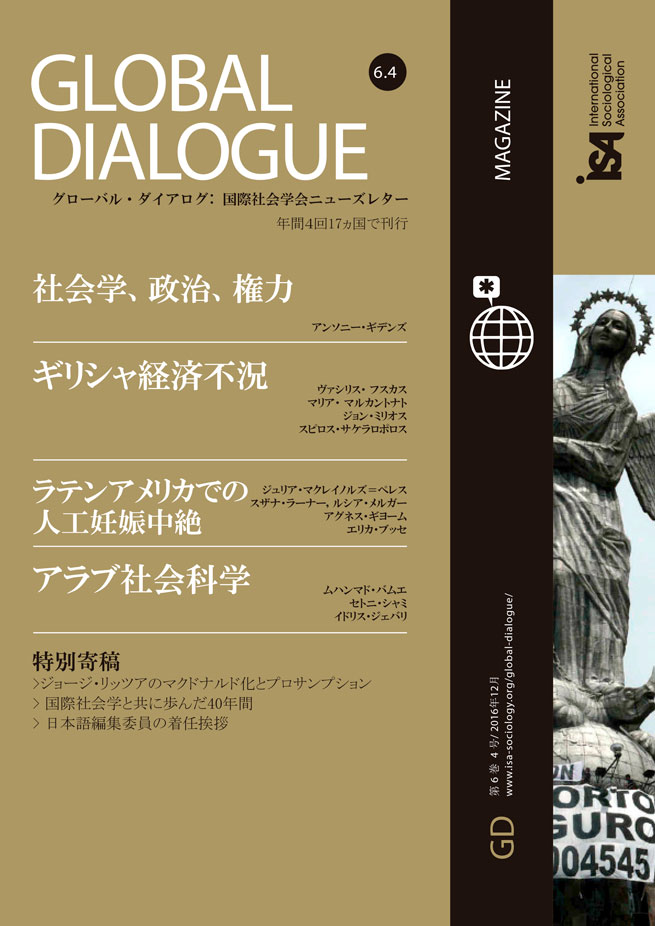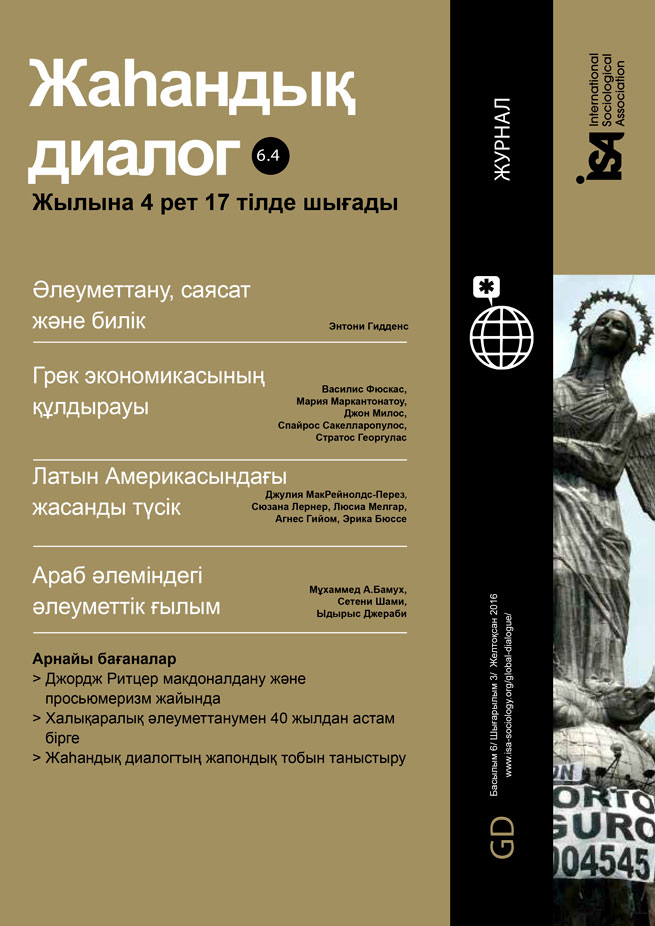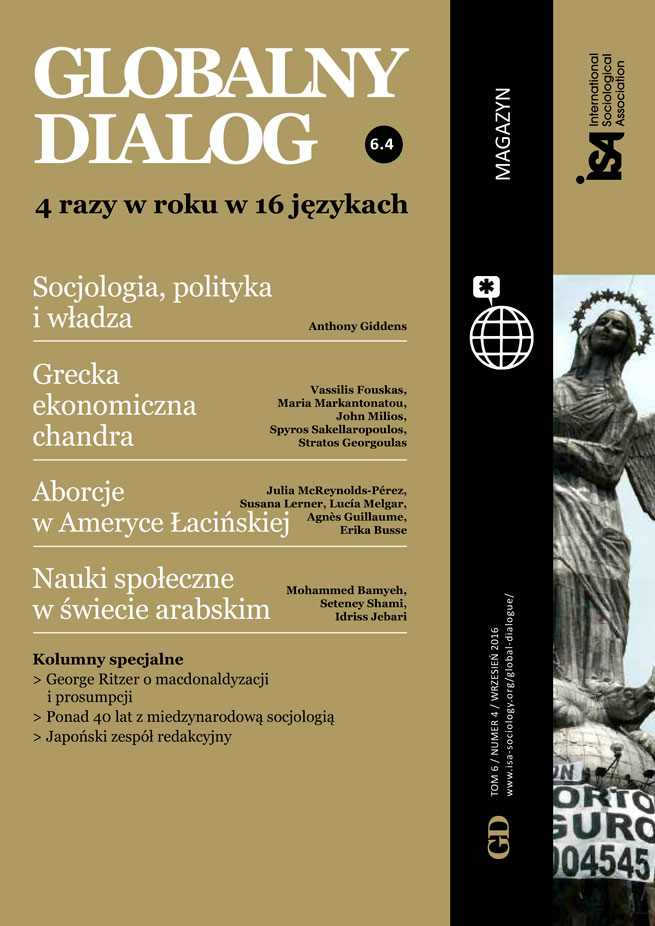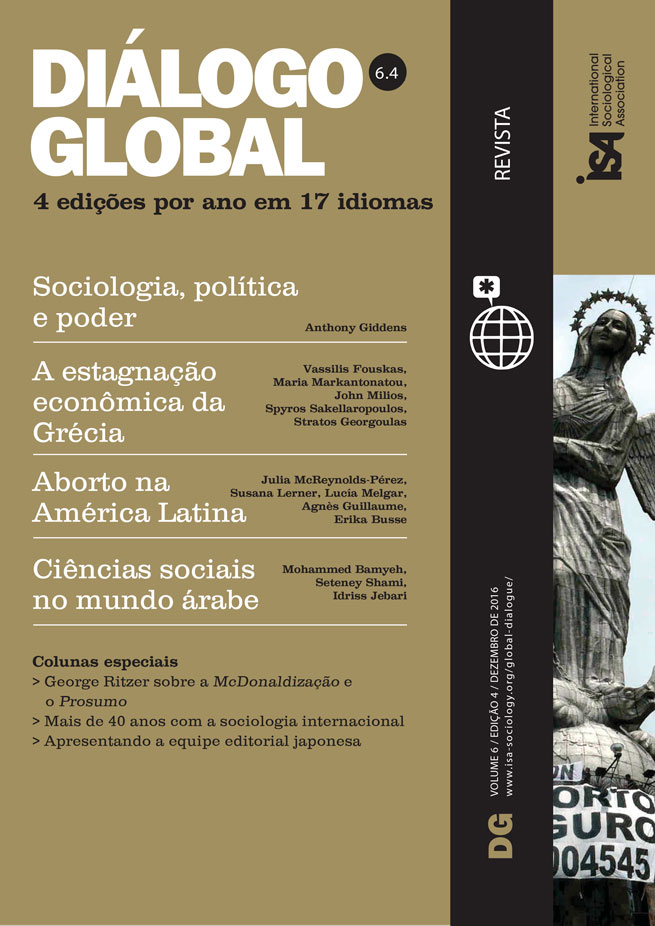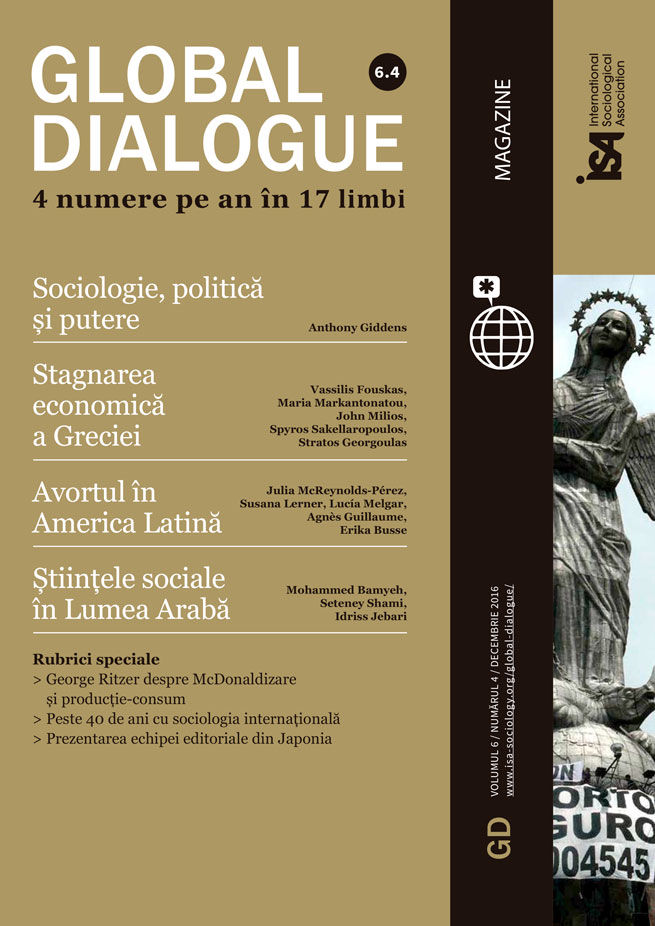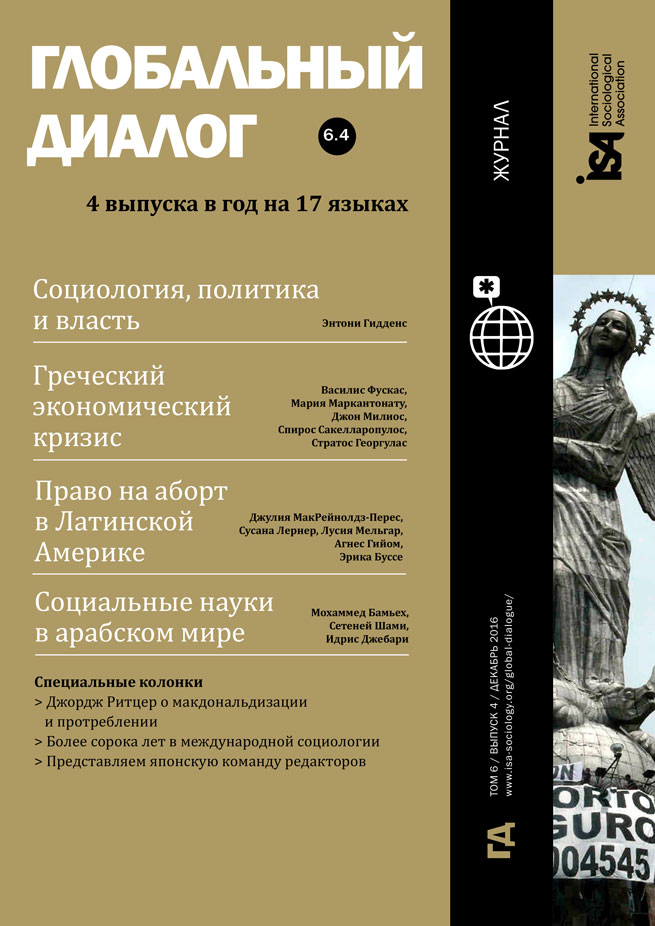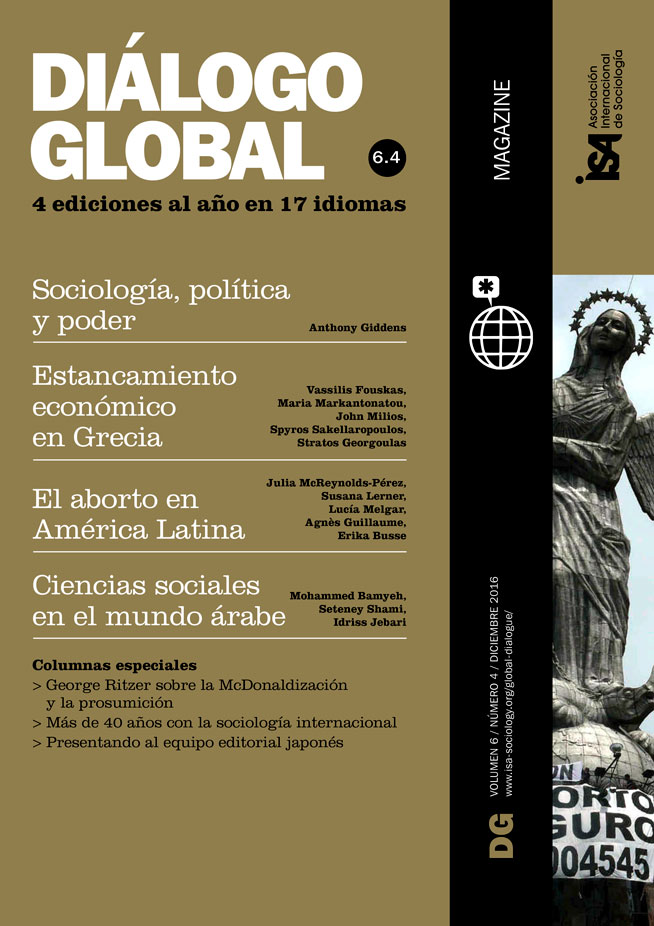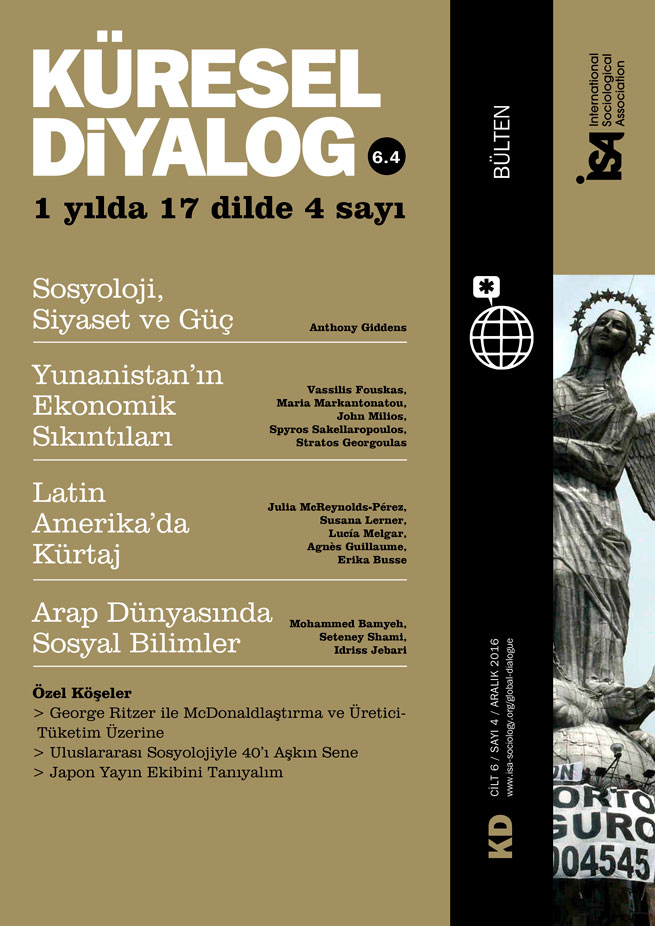Sociology, Politics and Power: An Interview with Anthony Giddens
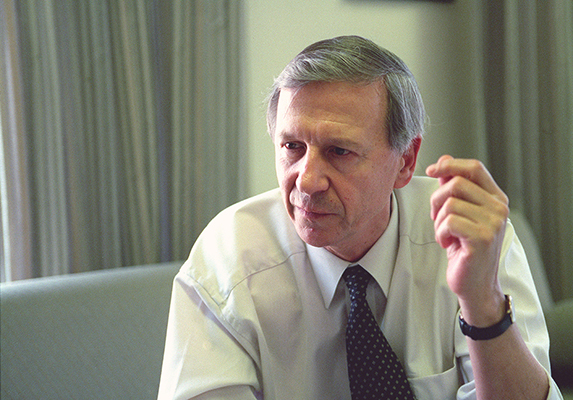
December 02, 2016
Anthony Giddens led the rebirth of British sociology in the 1970s with pioneering books on social theory that reinterpreted classics for the modern age. He dissected the question of agency in a structured world, the linking of micro-processes to macro forces, and the relevance of globalization for everyday life. More recently, he has addressed the consequences of the digital revolution and the threat to human existence posed by climate change. He is the author of more than 30 books, a former Director and Emeritus Professor of the London School of Economics and since 2004 a member of the House of Lords. In the interview that follows he reflects on the place of sociology in politics.
Peter Kolarz received his PhD in sociology from the University of Sussex (UK). He is a policy research consultant at Technopolis Group and has authored several policy studies and evaluations, including for UK ministries and the European Commission. His book Giddens and Politics Beyond the Third Way: Utopian Realism in the Late Modern Age (2016) is published by Palgrave Macmillan. The interview took place in the House of Lords (UK) on June 8, 2016.
PK: You have written on a wide range of topics: structuration theory, historical materialism, late modernity and globalization, transformations of personal life and sexuality, the third way, climate change, the future of the EU, and have most recently started giving talks about the digital revolution. Would you say there is any kind of thread that runs through all or most of these clusters of your work?
AG: My overall agenda has been to look at the nature of modernity – the emergence of the industrial order and its spread across the world, by far the most revolutionary and transformative period ever. To me history is substantially discontinuous: there is no evolutionary model of history that works. There are always situated people, doing things in particular environmental, social and geographical contexts, which condition what they do, but which they also respond to and reshape in a diversity of ways. I don’t share a Durkheimian view of the social sciences, where we seem to appear more like passive agents, rather than the knowledgeable beings we all are. Erving Goffman – to my mind perhaps the greatest sociologist of all – emphasizes the skilled nature of what people do in everyday life, without necessarily knowing they do it. My ambition has been to relate that perspective to more macrostructural processes. That’s not easy to accomplish but it seems crucial to me: a lot of sociology in the old days made it appear as though we were just the playthings of larger social causes. I wanted to uncover the subtlety of the relationship between these things. That’s one of the reasons I have always been interested in the transformations of communications and connections. The transformation of everyday life and identity is as important as the more large-scale systems and problems that we try to deal with.
PK: So if there were one element in your body of work that you would consider most important for those pursuing social and political change, what would it be?
AG: It would be the format that we’re talking about: the immense subtlety of the interaction between how people make their own lives and at the same time are creatures of the larger structures of which they are part. That’s as true in politics as in other areas. Well-intentioned policies are never enough and can often rebound.
PK: In my 2016 book Giddens and Politics Beyond the Third Way, I highlight your concept of utopian realism. Is that a notion you would still subscribe to?
AG: Utopian realism is a concept I still use. The overall challenge is to connect utopian idealism with realpolitik – on the face of it two opposites. A politics devoid of ideals would be without directive purpose. We have to envisage states of affairs on the other side of the status quo at any point in time. At the same time, ideals on their own are empty. The notion of utopian realism seems to me a handy way of sensitizing us to the role of ideals – of getting beyond the here and now on the one hand – but at the same time showing that they have purchase on reality on the other. It’s a sensitizing device to think about politics and the world. In democratic politics, a party that devoted itself simply to winning elections wouldn’t in fact win any elections; and nor would one that has lofty ideals but fails to show how they relate to the nitty-gritty of people’s concerns and aspirations. It’s very hard to square this circle, as we all know.
PK: Regarding your political work in the 1990s on globalization and the third way, what would be your verdict if you look at the political and policy landscape now? Is there anything from that debate that you would still consider important today that hasn’t been adequately dealt with?
AG: It’s hard to remember it now, but at that point the notion of globalization – meaning the increasing interdependence of individuals, organizations and states across the world – was quite new, especially in a political context. Trying to get political leaders to take it seriously was difficult initially. They would just look at me blankly. Then almost overnight everything changed. You couldn’t stop them talking about it, even if often on a pretty crude level. Unfortunately, most politicians and also many social scientists have used the notion to refer primarily, or wholly, to the spread of global markets. The driving force of globalization then as now – with the extraordinary advance of the digital revolution – was above all communication, especially electronic communication.
I used the term “third way” with some reluctance. For me, it did not mean developing a political position “between” left and right, a sort of middle way. Still less did I see it as a version of neoliberalism, a belief in the infinite wisdom of unfettered markets. As I wrote in my book The Third Way in 1998, “the regulation of financial markets is the single most pressing issue in the world economy”. I was then, and am today, a believer in the crucial importance of active government – which however should not be equated simply with the state, but can come also from a range of other agencies. I was then, and am now, a believer in developing mechanisms of global governance, deeply challenging though that is.
For me inequality was a key issue – as anyone who takes the trouble to look into what I’ve written can easily see. It’s become even bigger now because of the extreme inequalities that have emerged at the top of the wealth pyramid and the failure to raise productivity, and therefore wages, for many people working in low-level jobs. Thomas Piketty’s book Capital in the Twenty-First Century has become a world-wide success because it provides a powerful interpretation of the structural reasons that have produced these glaring disparities, as well as some possible strategies for reducing them.
But of course politics is national and the world is global. So there remains a key thing: we still have the issue of how we can reconcile national politics with an inherently global world. A good deal of the sources of populism comes from that difficulty, and from the fact that everybody knows that national politicians don’t have the power that they must claim they have.
PK: Do you see any way into cracking this disjuncture between national politics and global transformations and inequalities?
AG: Yes, there has to be one, and in my book on Europe[1] I spoke about the need to attack in a coordinated way the issue of tax havens, and to seek to reverse deindustrialization in the Western economies, leading to a recreation of manufacture, albeit in quite different form from the past. That overlaps with the digital revolution, because once money is electronic, it can be shifted around the world instantaneously – one of the factors helping to generalize tax havens. However by the same token it is more difficult to hide the vast swirl of corrupt money around the world than it was in the past. I think global public opinion has also turned strongly against the idea that you can simply conceal vast wealth on a global level and expect no-one to care about it.
As yet, effective (let alone democratic) global governance is a pipe dream, but we do have a range of agencies, groups of nations and international organizations trying to work together to deal with global problems. It’ll be very interesting to see what happens as a result of the Paris climate change agreements: will they turn out to be empty or not? We don’t know at this point, but they’re certainly very different from anything that’s been agreed on paper before. You can see them actually strongly affecting the position of the fossil fuel industries already, as the value of their stocks decline. There is at least the possibility of a truly global revolution in low-carbon energy taking place and a fundamental question is how rapidly or otherwise that will move. Marx famously said that “all that is solid melts into air,” and perhaps it will be a version of that principle; we shall see. The new wave of globalization, brought about by the pace, scope and awesome speed with which the digital revolution is advancing, is a major influence here.
PK: This has been a frequent theme in your work: globalization as the contraction of time and space, brought about through information and communication technology, and the associated risks and opportunities. Do you think it is possible to steer these developments, or “ride the juggernaut of globalization”, as you once said, in a reasonably constructive way, or do we just have to “go with it” and see what happens?
AG: The Internet is an extraordinary phenomenon in terms of its impact. It is truly global beyond anything we ever anticipated. It links the intimacies of self through to the global. However it is only one element of the digital revolution, properly understood. The others are supercomputers and robotics. I have come to see supercomputers as the prime connecting link. The smartphone in your pocket is more powerful than a supercomputer of a few decades ago. This huge algorithmic power is available to the mundane user, just as it is to organizations, businesses and states. Almost every aspect of world society is being affected and transformed. This is a world in which almost everything is visible to everyone, since smartphones have become diffused even to some of the poorest societies of the world. Many of the migrants leaving oppressed areas to seek refuge elsewhere are using smartphones and GPS to track their desired routes. This is 21st century migration – just as IS, which mixes medieval levels of violence with a mastery of digital technology, is 21st century terrorism.
Many people see the digital revolution producing a fragmented world, but most of the innovations have been pioneered by state intervention, quite often with quasi-military purposes. The Internet appears ephemeral, but it has a physical existence in the shape of cables under the oceans and satellites in the sky – things that are ultimately guaranteed by states and state power. So I think the resurgence of geopolitics is not as surprising as others do. Giant corporations and ubiquitous advertising are also driving forces. This is a new environment, and many of the changes that affect us most are not mediated by a political process, but by power, either of states or of giant corporations. Nobody voted for a world in which pornography is freely available, in both senses of the word “free.” It may be innocuous, it may not. We don’t know because it is all so new.
PK: Let’s talk about politics in the present then: do you see at the moment much of a constructive debate going on about the future of the left?
AG: We have to try and do a new version of the center-left that begins sociologically from the changes in the fabric of world society and in everyday life just mentioned. The third way debate emerged from an analysis of the major changes transforming our lives at that time, and we have to go through a similar exercise today. We must look at the big changes in the world, see what traction one can get politically from those, see how they fit within the framework of national and transnational politics. What has happened within the Labour Party with the advent of Jeremy Corbyn to me is a hybrid – a digital younger generation directly involved, but ideas that in some part derive from years ago.
We on the left have to go forward to the future. We’re well beyond the so-called third way debate period now, and new ideas are urgently needed. I’m also against the idea that somehow everything just becomes fragmented – I don’t think that’s true. You’re still dealing with power politics, you’re still dealing with the grand issues, like how can we get more egalitarian societies in the context of global corporations, how can we recover ill-gotten gains that are stacked in tax havens? So power still counts for a lot. Collaboration between nations and therefore democratic politics within nations, and within the EU, counts for a lot.
PK: That leads to my last question. More successfully than most, you moved from academe into formal politics. I’d be interested to hear your views on being a sociologist in politics, and relatedly, whether you have any particular advice for social scientists looking to ensure their work has political traction, who might be interested in influencing things that go on in places like this one.
AG: Well, I’m in politics but not of politics. I was an academic and I stay an academic. For me the best milieu is the university since it’s where I feel most at home, and as I’ve tried to stress, ideas and down-to-earth research count for an enormous amount in the political sphere. One of the main problems for any academic involved in politics is that you can lose touch with both your constituencies. To academics you have betrayed your academic objectivity, while to politicians you’re someone who has no grasp of the demands of everyday political life. You can get stranded between the two worlds very easily.
The academic and political worlds are very different and not many people try to bridge them directly. Think tanks play an important mediating role between the academy and politics. They depend crucially on research done in universities. They are in the business of translating academic research into practical policy proposals – and have closer connections in the media than academics normally do. The top such organizations are often closely in touch with the government of the day, or with a wider spectrum of political actors. I’m not saying it is the only route, but when I decided to get a bit more directly involved with politics in the mid-1990s I approached the Institute for Public Policy Research (IPPR) – one or two academics I knew were already involved with them. From there I found it possible to develop a wider network of people in the political sphere. The IPPR and the wider network around it had good connections in other countries, including the US. I never became a formal political adviser to anyone though, and have continued to see myself as primarily an academic.
[1] Giddens, A. (2014) Turbulent and Mighty Continent (second edition). Cambridge: Polity.
Anthony Giddens <Ax.Giddens@lse.ac.uk>

